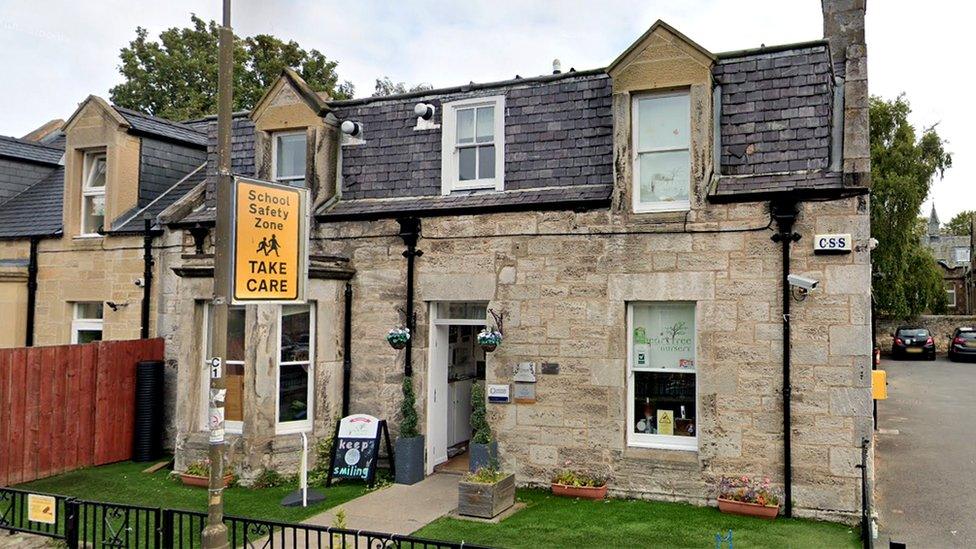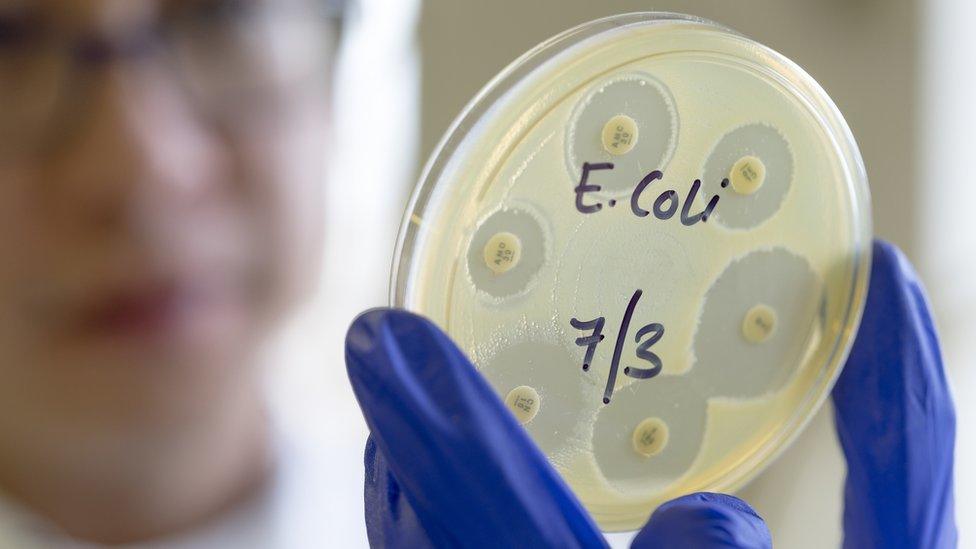East Lothian nurseries reopening after E. coli outbreak
- Published

Cases were confirmed at Pear Tree's Meadowpark nursery in August
Five nurseries that were shut due to an E. coli outbreak are being allowed to reopen.
The learning centres had been closed down as a safety precaution amid an outbreak in East Lothian.
The E. coli infections were first reported in early August, with a total of 56 cases confirmed.
Health officials have announced that they are continuing to investigate the specific source of the initial outbreak.
Church Street Pear Tree Nursery in Haddington was originally closed on 2 August after a number of children fell ill and went on to test positive for E. coli.
Its sister site, Meadowpark Pear Tree Nursery, was then closed on 12 August as a precaution before E. coli cases linked to the premises were confirmed on 18 August.
West Road Pear Tree Nursery in Haddington was also closed, along with Musselburgh Private Nursery on Bridge Street and Musselburgh Private Nursery in Stoneybank.
The Musselburgh nursery chain became the latest to welcome back staff and children after final checks and inspections were carried out by East Lothian Council's environmental health team, together with the Care Inspectorate and NHS Lothian's Public Health team.
The Stoneybank nursery reopened on Wednesday, with the one in Bridge Street also gearing up to reopen.
Two other nurseries linked to the outbreak reopened at the end of August.
'Complex outbreak'
Dr Josie Murray, consultant in public health medicine and chair of the multi-agency Incident Management Team (IMT) set up to deal with the outbreak, said: "We are really encouraged to see all of the nurseries open their doors once again and welcome back their staff and pupils.
"We know it has been a really difficult time for everyone involved, especially in accepting some of the control measures which were vital in containing the infection and stopping its spread within the community.
"On behalf of the IMT, I would like to thank everyone for working with us throughout this rapidly evolving and complex outbreak."
Work is continuing behind the scenes to try to identify the source of the infection.

What is E. coli?

Anyone who attends or works at the school has been asked to stay at home and get tested
Escherichia coli (E. coli) bacteria are found in the intestines of humans and animals. There are many different types, some are harmless and others can cause a variety of diseases.
The bacterium is found in faeces and can survive in the environment.
E. coli bacteria can cause a range of infections including urinary tract infection, cystitis (infection of the bladder), and intestinal infection.
E. coli infections can be serious and often cause severe diarrhoea, sometimes with blood in it, abdominal cramps and fever.
Related topics
- Published31 August 2022

- Published19 August 2022

- Published26 August 2022
